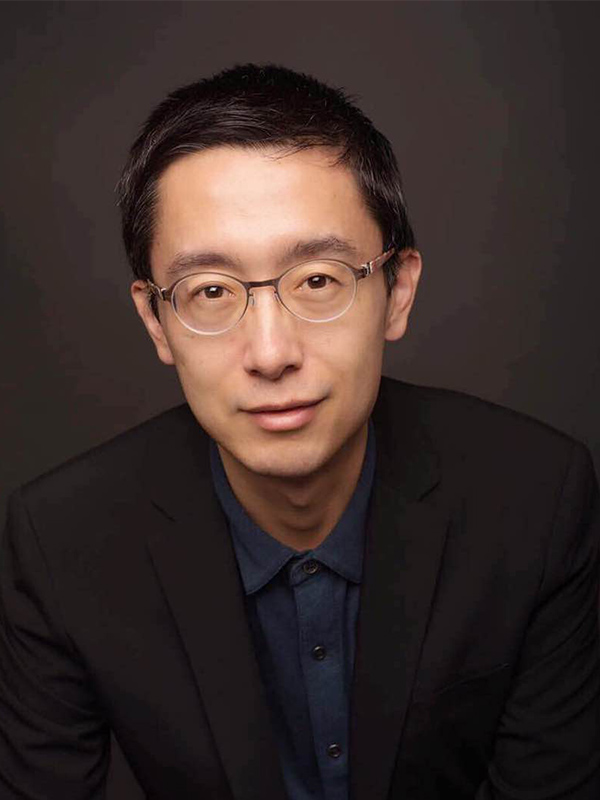1st Keynote Speaker

Prof. Bhavani Thuraisingham
Fellow of IEEE, ACM, AAAS
The University of Texas at Dallas, USA
Title: SecAI: Integrating Cyber Security and Artificial Intelligence
Abstract: Artificial Intelligence (AI) emerged as a field of study in Computer Science in the late 1950s. Researchers were interested in designing and developing systems that could behave like humans. This interest resulted in substantial developments in areas such as expert systems, machine learning, planning systems, reasoning systems and robotics. However, it is only recently that these AI systems are being used in practical applications in various fields such as medicine, finance, marketing, defense, and manufacturing. The main reason behind the success of these AI systems is due to the developments in data science and high-performance computing. For example, it is now possible collect, store, manipulate, analyze and retain massive amounts of data and therefore the AI systems are now able to learn patterns from this data and make useful predictions.
While AI has been evolving as a field during the past sixty years, the developments in computing systems and data management systems have resulted in serious security and privacy considerations. Various regulations are being proposed to handle big data so that the privacy of the individuals is not violated. For example, even if personally identifiable information is removed from the data, when data is combined with other data, an individual can be identified. Furthermore, the computing systems are being attacked by malware resulting in disastrous consequences. In order words, as progress is being made with technology, the security of these technologies is in serious question due to the malicious attacks.
Over the decade. AI and Security are being integrated. For example, machine learning techniques are being applied to solve security problems such as malware analysis, intrusion detection and insider threat detection. However, there is also a major concern that the machine learning techniques themselves could be attacked. Therefore, the machine leading techniques are being adapted to handle adversarial attacks. This area is known as adversarial machine learning. Furthermore, while collecting massive amounts of data causes security and privacy concerns, big data analytics applications in cyber security is exploding. For example, an organization can outsource activities such as identity management, intrusion detection and malware analysis to the cloud. While AI techniques are being applied to solve cyber security problems, the AI systems have to be protected. For example, how can the machine learning systems be protected from the attacks? What are the threats to the planning systems? How can expert system carry out their functions in the midst of malware attacks? What are the appropriate access control models for AI systems? How can we develop appropriate security policies for AI systems? These are questions that researchers are beginning to provide answers to.
To assess the developments on the integration of AI and Security over the past decade and to determine future directions, the presentation will focus on two major questions: (i) how can the developments in AI techniques be used to solve security problems and (ii) how can we ensure that the AI systems are secure and(iii) what are the security and privacy considerations for AI systems. Second, it will describe the application of AI including machine learning for cyber security applications such as insider threat detection. Third, it will discuss the trends in areas such as adversarial machine learning that take into consideration the attacker’s behavior in developing machine learning techniques. Fourth, it will discuss some emerging trends in carrying out trustworthy AI so that the AI techniques can be secured against malicious attacks. Fifth, it will focus on the privacy threats due to the collection of massive amounts of data and potential solutions. Finally, it will discuss the next steps.
Bio: Dr. Bhavani Thuraisingham is the Founders Chaired Professor of Computer Science and the Executive Director of the Cyber Security Research and Education Institute at the University of Texas at Dallas. She is also a visiting Senior Research Fellow at Kings College, University of London and a Fellow of the ACM, IEEE, the AAAS, the NAI and the BCS. She has received several awards including the IEEE CS 1997 Technical Achievement Award, ACM SIGSAC 2010 Outstanding Contributions Award, and the ACM SACMAT 10 Year Test of Time Awards for 2018 and2019. She co-chaired the Women in Cyber Security Conference (WiCyS) in 2016 and delivered the featured address at the 2018 Women in Data Science (WiDS) at Stanford University and has chaired several conferences for ACM and IEEE. Her 39 years career included industry (Honeywell), federal laboratory (MITRE), US government (NSF) and US Academia. Her work has resulted in 130+ journal articles, 300+ conference papers, 140+ keynote and featured addresses, six US patents, fifteen books as well as technology transfer of the research to commercial and operational systems. She received her PhD from the University of Wales, Swansea, UK, and the prestigious earned higher doctorate (D. Eng) from the University of Bristol, UK.
2nd Keynote Speaker

Prof. Xue Liu
Fellow of the IEEE
Fellow of the Canadian Academy of Engineering
The McGill University, Canada
Title: AI for Systems, Systems for AI
Abstract: Recent years witnessed the successful resurgence of artificial intelligence. Deep learning and other machine learning methods have brought amazing breakthroughs in many areas, including computer vision, speech recognition, and natural language processing. Artificial intelligence has become a disruptive technology in the information era.
In this talk, I will discuss the interaction of AI and system research (including cloud computing). I will use a few recent example developments to demonstrate that they are crucial in advancing each other: On the one hand, AI techniques are particularly useful to solve challenging problems in systems and network management; On the other hand, we need to improve the current system solutions and even design and build new systems to make AI systems and services more effective and efficient.
Finally, I argue that the positive cycle of advancing AI and the underlying systems that support it will lead to highly autonomous and intelligence systems for the future.
Bio: Dr. Steve Liu is a VP R&D, Chief Scientist, and Co-Director of the Samsung AI Center Montreal. He is also a Professor and William Dawson Scholar at McGill University. He received his Ph.D. with multiple honors from the University of Illinois at Urbana-Champaign. He has also worked as the Samuel R. Thompson Chaired Associate Professor in the University of Nebraska-Lincoln, as a visiting scientist at HP Labs in Palo Alto, California, and as the Chief Scientist of Tinder Inc.
Dr. Liu is a Fellow of the IEEE and a Fellow of the Canadian Academy of Engineering. He has received many awards and recognitions, including the Mitacs Award for Exceptional Leadership – Professor, Outstanding Young Canadian Computer Science Researcher Prize, the Tomlinson Scientist Award, and several IEEE or ACM Best Paper Awards. He serves/has served as an Editor/Associate Editor for several prestigious ACM and IEEE Transactions and has served on the organizing committees of many IEEE or ACM conferences, including INFOCOM, IWQos, CPS-IoT Week, ICCPS, e-Energy, RTSS, RTAS, SenSys, etc.

